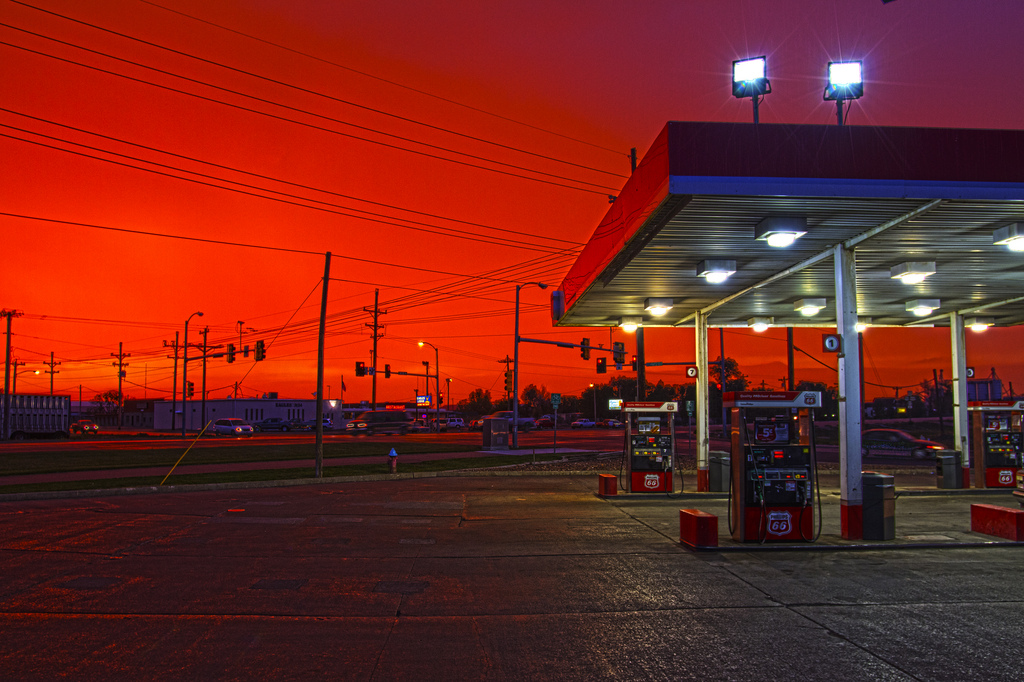
Decreasing Gas Prices Creates Negative Effects
News & Politics, Political-Opinion April 21, 2015By Eduardo Lozada
Some people might find the gas prices decreasing to be a positive thing and might not see anything wrong of it. However, gas prices dropping could actually have some negative effects on not just the United States but on other countries as well. Daniel Gomez, who lives in Tampa but attends University of South Florida St Petersburg campus said about gas prices, “I love it. I drive almost every day to get here and now it takes me twenty dollars to fill up my tank.”
It seems as though the gas was $3.19 and the next minute the gas prices dropped to $1.95. Most of our oil comes from other places around the world. The top three, in order from greatest to least is Canada, Saudi Arabia, & Mexico. According to Clifford Krauss, a business correspondent covering energy for The New York Times, oil that is sold from other places to the United States are being forced to drop the gas prices simply because the U.S. isn’t going to pay a high price. Instead, we were looking at Asian Markets, and once there was competition, countries started to lower the prices. The prices went from $100 per barrel to $60 per barrel. Some countries are even going as far as $45 and less.
Another reason for this decrease is renewable sources. Amy Myers Jaffe, an executive director for energy and sustainability at the University of California states Google and Microsoft and other companies have come up with these fantastic energy efficiency batteries, storage, and off-grid energy solutions, so renewable energy will continue to compete. With all these well-known companies trying to make renewable sources easier and more popular to use, oiling companies have no choice but to drop prices to put up a fight.
A student at Eckerd College named Anthony Lovreglio is a junior with a major in Environmental Studies. When asked if he thinks there are any negative effects to the decrease in gas prices, he said, “It is going to increase fossil fuel.” According to Lovreglio, “The more cars that are driving, the more greenhouse gases will be in the ozone layer and will cause a huge climate change and it is going to get worse.” He went on to say, “We are now also drilling into our own soil to find oil and that is going to impact our own land and habitats will be destroyed.”
According to The New York Times, Krauss says oil-producing countries and states will suffer economic and perhaps even political turbulence. He went on to write that the Persian Gulf countries are likely to invest less money around the world and may cut aids to other countries. This then affects smaller oil companies that are heavily in debt. The small companies may go out of business, which then affects some banks that lent money to them. This would make some people lose their jobs.
David Dayen, a writer and columnist that has been cited by The New York Times & The Wall Street Journal, has said that rig counts will surely drop further as the year goes on, causing a loss of good-paying jobs. As an example of this, U.S. Steel recently laid off about 700 workers at Steel tube plants in the Midwest. The dropping of gas prices also leads to raising gas taxes. Assembly-man John Wisniewski has proposed increasing the gas tax by at least 25 cents a gallon to generate an additional $1.25 billion a year for the nearly broke trust fund. This would affect the poorer households that pay low-income tax credit, which could lead to families going broke.
There are some good and bad effects of decreasing gas prices from the environment, to job losses, other countries economies becoming worse, to now only having to fill up your tank with twenty dollars. How long will these gas prices continue to decrease and will there be a ripple effect?
What do you think? Are gas prices decreasing a good or bad thing?
Header photo by Patrick Emerson (flickr creative commons license).





